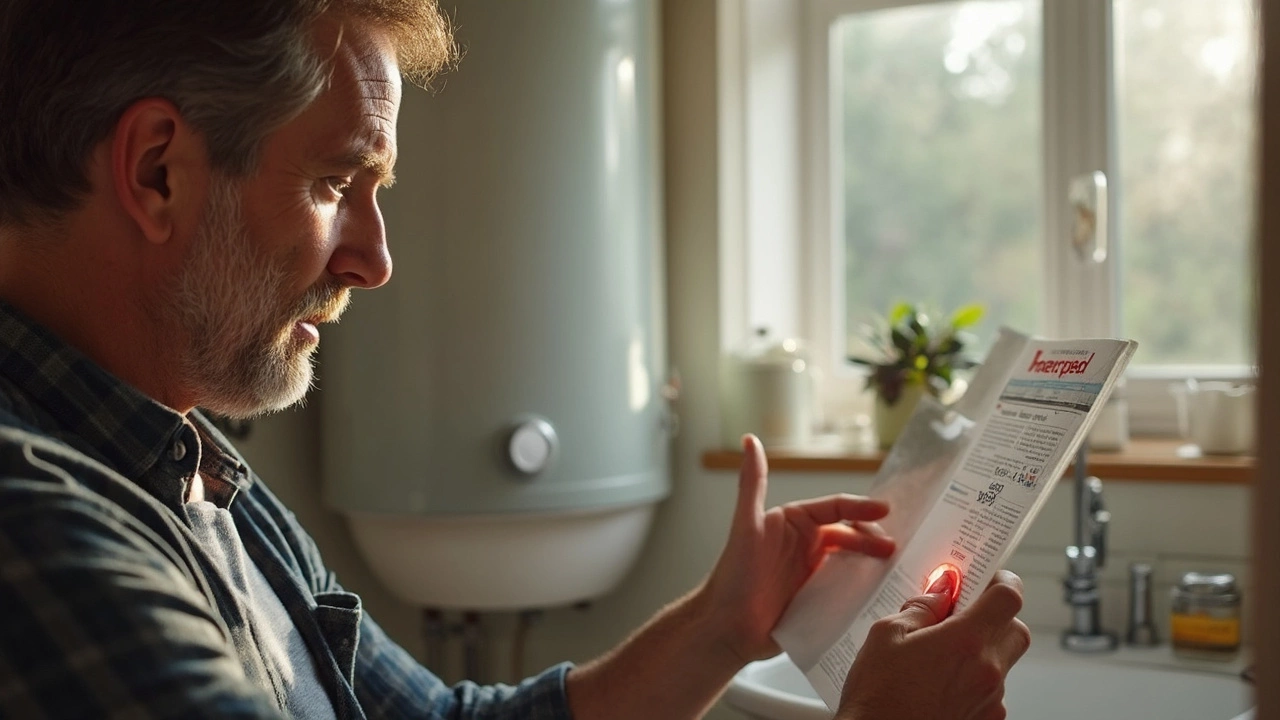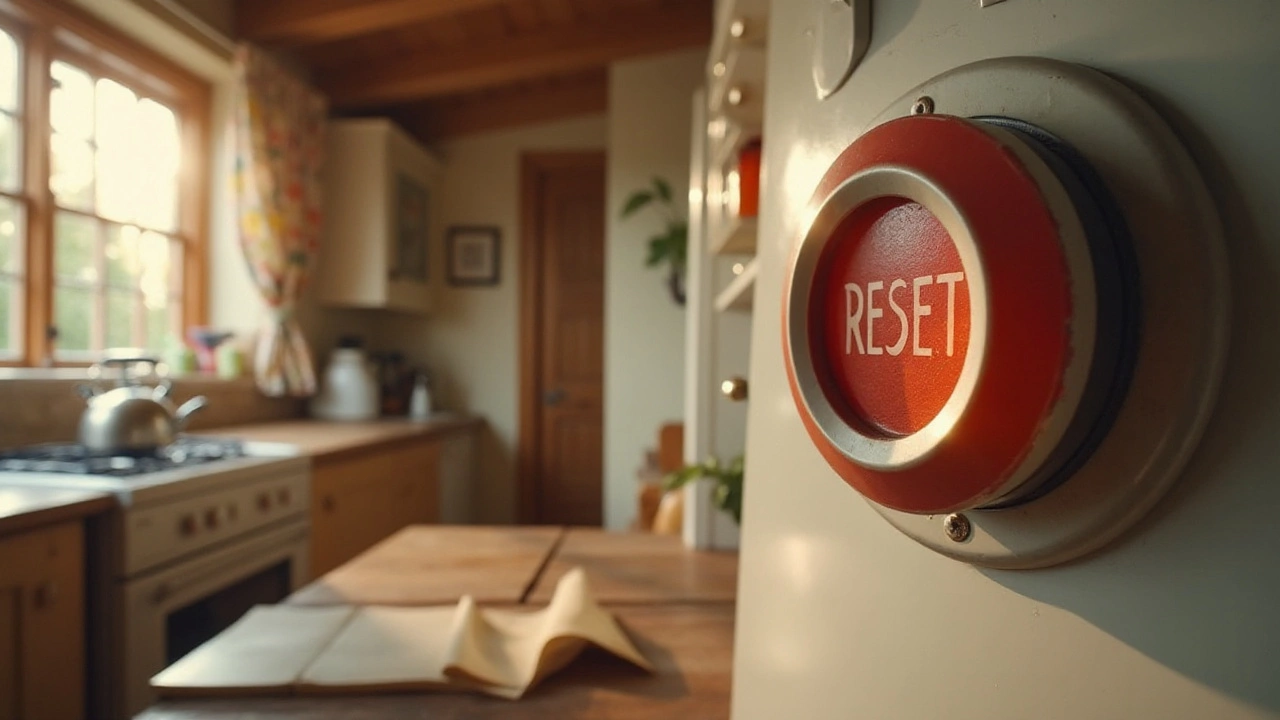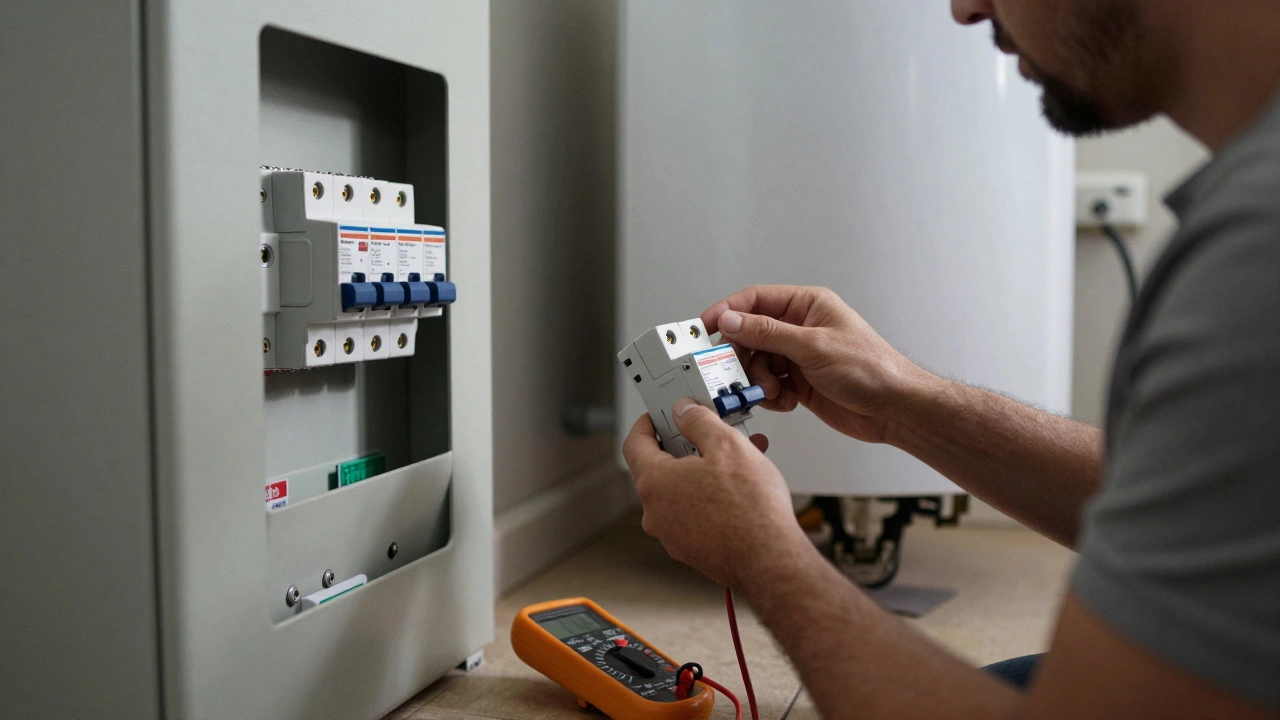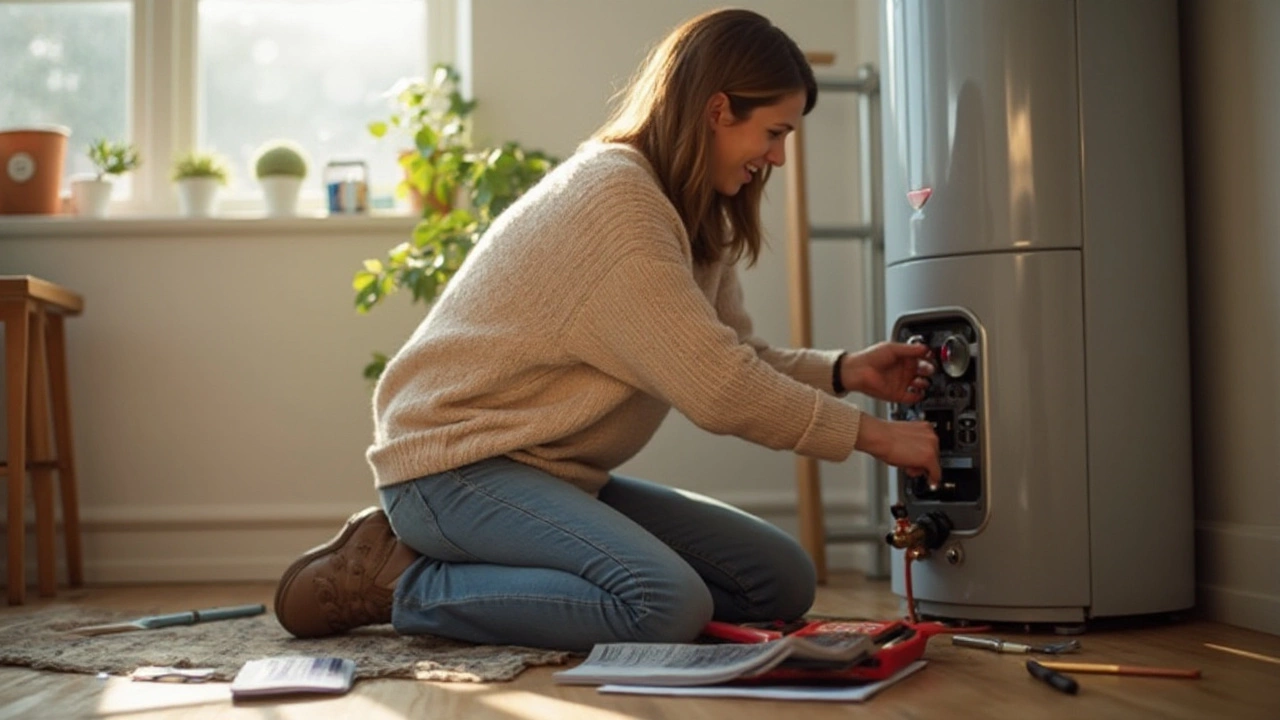
- 7 Dec 2024
- Gideon Thornton
- 0
Picture this: it’s the cold season, and you’re eagerly anticipating a warm shower, only to be greeted with the unpleasant surprise of icy water. Frustrating, isn’t it? This scenario is all too common in homes, but understanding why your water heater is acting up can sometimes lead to a quick fix, saving both time and expense.
Before jumping to conclusions, let’s slowly unravel the mystery behind why the water may be cold, turning into proactive detectives who can spot common but hidden issues. Whether it's something as minor as a sedated pilot light or a more elusive problem like a malfunctioning heating element, we'll walk through the steps together.
- Identifying Common Issues
- Simple Solutions to Try at Home
- When to Call a Professional
- Preventative Maintenance Tips
- Understanding Water Heater Mechanics
Identifying Common Issues
When dealing with a water heater repair, particularly one that leaves you with only cold water, it's essential to pinpoint the problem accurately. Addressing the root cause not only ensures a quicker fix but also prevents potential damage in the future. First off, check the power supply. For electric water heaters, a breaker trip is a typical culprit, leading to the heater not working properly. It might sound simple, but resetting the breaker or checking for a blown fuse can sometimes resolve the cold water issue.
Another common factor could be a defective thermostat. The thermostat controls the temperature, and if it malfunctions, you may end up with cold showers. It's worthwhile to set the temperature to a safe 120 degrees Fahrenheit, which is efficient and comfortable for most homes. Always ensure your security by turning off power at the fuse box before starting any inspection on the thermostat. Interestingly, according to the American Council for an Energy-Efficient Economy, adjusting the thermostat to this level can save around 3-5% in energy costs for every 10-degree reduction in temperature.
For gas water heaters, the pilot light is one of the first things to inspect. If it's out, the water won't heat. Carefully relight it according to your heater's manual instructions and observe to ensure it stays lit. If it doesn’t, there could be deeper issues at hand, such as a faulty thermocouple. A blocked burner or combustion chamber can also prevent effective heating. Regular cleaning and maintenance here are critical. As John Vokey, a renowned home utilities expert, emphasizes, "The most ingenious tool any homeowner has is a comprehensive understanding of their systems."
Fix water heater issues also demand a check on the tank itself—especially watch for sediment build-up inside the tank, which can insulate the water from the heat source, leading to lukewarm showers or worse. Draining and flushing your tank at least once a year can help avoid this issue. Over time, sediment collection can also lead to loss of water capacity and efficiency. A simple way to keep on top of this is to schedule regular maintenance, ensuring optimum heater lifespan and performance.
Indeed, a malfunctioning heating element may also be the reason your water heater is just acting as a rather large, chilling vessel. Electric heaters have two elements, and if either is compromised, you’ll need a replacement to restore proper function. Testing these elements can be conducted, using a multimeter to determine if they are providing the right resistance. It's fascinating how just a simple connectivity issue can ripple into much larger inconveniences.
Finally, let’s not forget about the dip tube. This little-known component helps in directing incomprehensible cold water to the bottom of the tank where it should be heated. As it ages or especially with plastic models, it can break, leading to cold water mixing with hot water. Replacing the tube may just bring your showers back to the desired warm embrace. Armed with these insights, you’ll be better positioned to diagnose and tackle the notorious puzzle of why your water heater is misbehaving.
Simple Solutions to Try at Home
Tackling a water heater that's only delivering cold water can feel daunting at first, but many issues can be managed without calling a professional. One of the first places to start is the power supply if you have an electric heater. Check the circuit breaker to ensure it's not tripped; a tripped breaker is a common culprit for no hot water. If it is, try resetting it. This could be a quick fix to get your water heater back to its usual warmth.
With gas water heaters, it’s essential to look at the pilot light. The pilot must be lit for the heater to function properly. If you've noticed your pilot light is out, follow your heater's specific instructions to relight it safely. Many heaters have an igniter button, but older models may require manual lighting with a match. A seemingly minor aspect like this can often be overlooked yet is vital for proper heater functionality.
Check the Thermostat Settings
The thermostat setting is another pivotal factor. Water heaters typically have a thermostat dial that allows adjustment of the water temperature. If it’s set too low, you might only get lukewarm water. Adjust the thermostat to a higher temperature and give it some time to work its magic. Wait about 30 minutes to see if this adjustment yields hotter water. Be cautious not to set it too high to avoid scalding risks, setting it at around 120°F is generally safe and energy-efficient.
“Routine maintenance can prevent most issues with water heaters,” suggests the U.S. Department of Energy. Making it a habit to check your systems regularly could save you from unexpected cold showers.
Another simple fix involves flushing the tank to remove sediment build-up, which can insulate the water and make heating less efficient. To do this, turn off the power supply to the heater, then attach a garden hose to the tank’s drain valve to expel the sediment-filled water. Repeat the process until the drained water runs clear. This maintenance can improve performance and is recommended periodically.
Inspect for Leaks
Lastly, inspect your unit for any visible signs of leakage. Leaks can indicate more significant issues inside the heater, such as a failing tank or connections, and immediate care is necessary. Tightening loose connections and ensuring pipes are secure can sometimes resolve minor leak issues. If you find no visible problems outside these common checks, more intricate issues may require professional attention. Addressing each potential problem exhaustively might initially seem tedious, but it's often a journey toward a simple fix.
| Common Solution | Expected Outcome |
|---|---|
| Reset Circuit Breaker | Restores power to electric heater |
| Light Pilot Light | Ensures gas water heater ignites |
| Adjust Thermostat | Increases water temperature |
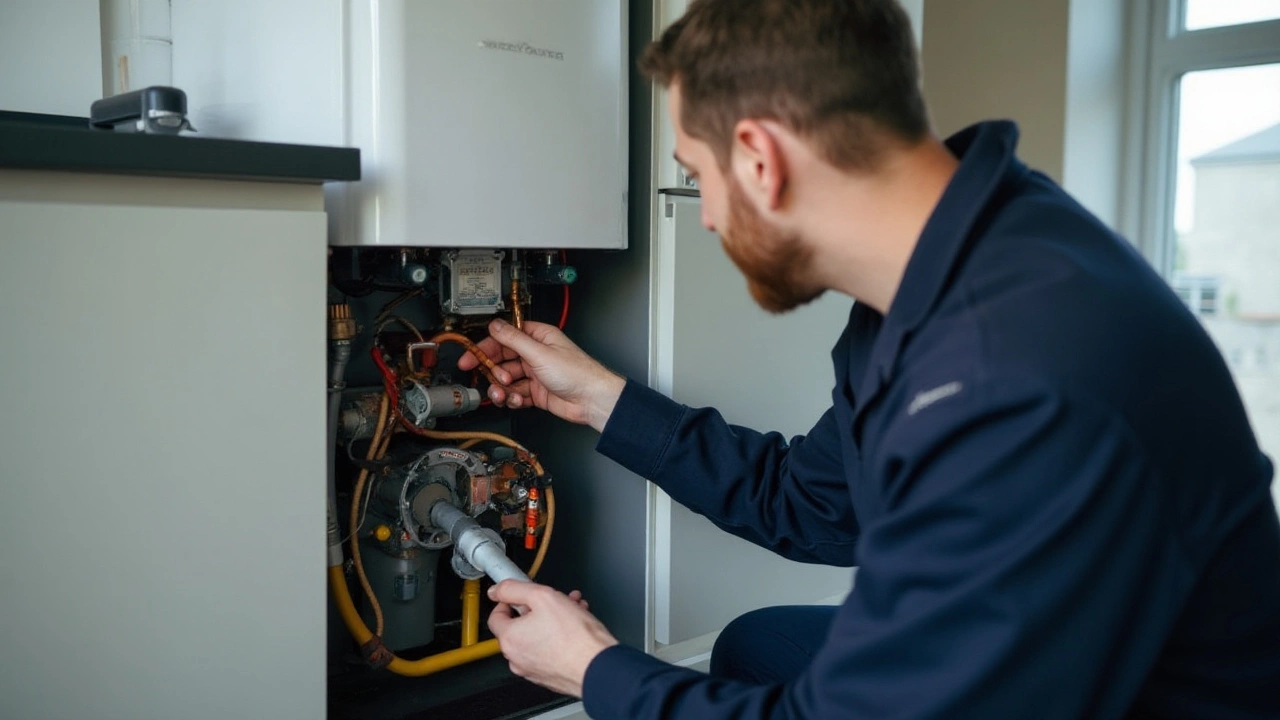
When to Call a Professional
Sometimes, despite our best efforts and troubleshooting attempts, our water heaters continue to produce that unwelcome stream of cold water, leaving us both puzzled and shivering. As much as DIY fixes often provide quick and useful solutions, there comes a time when one must acknowledge the wisdom of seeking professional intervention. Water heater repair can be complex, and safety should always remain your top priority. Water heaters involve electricity, gas lines, and plumbing—elements that can pose significant hazards if handled improperly.
One of the first signs a professional should step in is recurring issues. If you've addressed the common problems like inspecting the thermostat, checking the heating element, or resetting the breaker only for the cold water problem to persist or quickly recur, it’s a red flag. Professionals have the tools and expertise to identify hidden or complex issues that aren’t immediately visible. For instance, a faulty thermocouple may be disrupting the function of your water heater, a problem that often requires specialized diagnostic equipment to resolve. Despite the temptation to solve this through continued DIY effort, it's beneficial to rely on an experienced technician who can work efficiently and safely.
Moreover, in cases where there is notable rust-colored water or other strange noises emanating from the heater, it’s best not to delay. Rust can indicate corrosion from inside the tank or pipes, potentially compromising the structural integrity of your water heater—a repair situation where expert insight is crucial. Professionals can assess the extent of corrosion and recommend repairs or replacements before leaks or significant water damage occurs. Similarly, strange noises could point towards sediment build-up or pressure issues, both of which, if left unchecked, could lead to expensive failures or hazards.
"Your home relies on complex systems working in harmony," says John Carpenter, a seasoned plumber with over two decades of experience. "If one piece of the puzzle, like your water heater, begins to falter repeatedly, the expertise of a certified professional can save you from greater costs or disasters down the road."
Another significant cue to call a professional is any sign of gas or electrical issues. The pungent scent of gas can denote leaks, which are a serious danger, potentially leading to fires or explosions if mismanaged. Gas lines are not DIY-friendly; contact a professional immediately to handle these concerns safely. Likewise, electrical issues like frequent tripping of the heater circuit breaker could indicate deeper electrical faults. Since tampering with electrical systems can lead to shocks or severe damage if not correctly managed, reaching out to a professional is the prudent choice.
Finally, consider the age of your water heater. Units that are approaching or have surpassed ten years may start revealing their age through performance issues. While you might be able to nurse an elderly water heater back to a semblance of working order with home remedies, a professional assessment can guide decisions about whether repairs or replacements are more economical and sustainable solutions in the long run. Reputable professionals offer insights into energy-efficient replacements that could save on future energy bills, balancing new investment with cost savings.
In these scenarios, the safety and efficiency a professional can offer outweigh the perseverance and ingenuity of personal troubleshooting. By knowing when to call in the experts, you'll save both time and ensure the lasting reliability of household essentials—which can mean the difference between comfort and catastrophe in your daily life.
Preventative Maintenance Tips
Regular maintenance of your water heater not only ensures a steady supply of hot water but also extends the appliance's lifespan, which can save you from unexpected repair costs. Begin with a quick visual inspection every few months. Look for any rust or corrosion on the tank and connections, and ensure that there are no leaks. Sometimes, small signs of wear and tear can indicate bigger problems down the line. Be proactive and address these before they escalate into costly repairs.
Next, consider flushing out your water heater at least once a year. Over time, sediment can build up at the bottom of the tank which can reduce efficiency and ultimately lead to cold water issues. To flush your heater, start by turning off the power and water supply. Attach a hose to the drain valve and direct it to a safe disposal area. Carefully open the valve and let the water run until it appears clear, removing any built-up sediment. This simple act can improve the efficiency of your appliance significantly.
Another crucial aspect of maintenance is to check the thermostat settings. Sometimes the thermostat can accidentally be set lower than desired, leading to the dreaded cold showers. A good temperature setting is around 120 degrees Fahrenheit. This not only provides sufficiently hot water but also helps prevent scalding and energy wastage.
Checking Anode Rods
The anode rods play a pivotal role in preventing the tank from corroding. They attract corrosive minerals and keep them away from the tank's walls. Periodically check these rods and replace them every 3-5 years. If they are heavily corroded, they won’t be able to function correctly, and the tank might start to deteriorate, bringing on the issue of cold water among other problems.
Insulating the Heater
Insulate your water heater, especially if it's an older model. This can minimize heat loss and improve overall efficiency. Simple insulation blankets can be wrapped around the unit, which is a cost-effective way to upgrade your heater's performance. Insulating the heater is especially important in colder climates, where heat loss can be a significant issue.
Fix water heater mechanics with proper maintenance to ensure it runs smoothly. According to the U.S. Department of Energy, "Water heating accounts for about 18% of your home's energy use, making it the second-largest energy expense in your home." Hence, regular maintenance not only helps with water temperature but also keeps your energy bills under control.
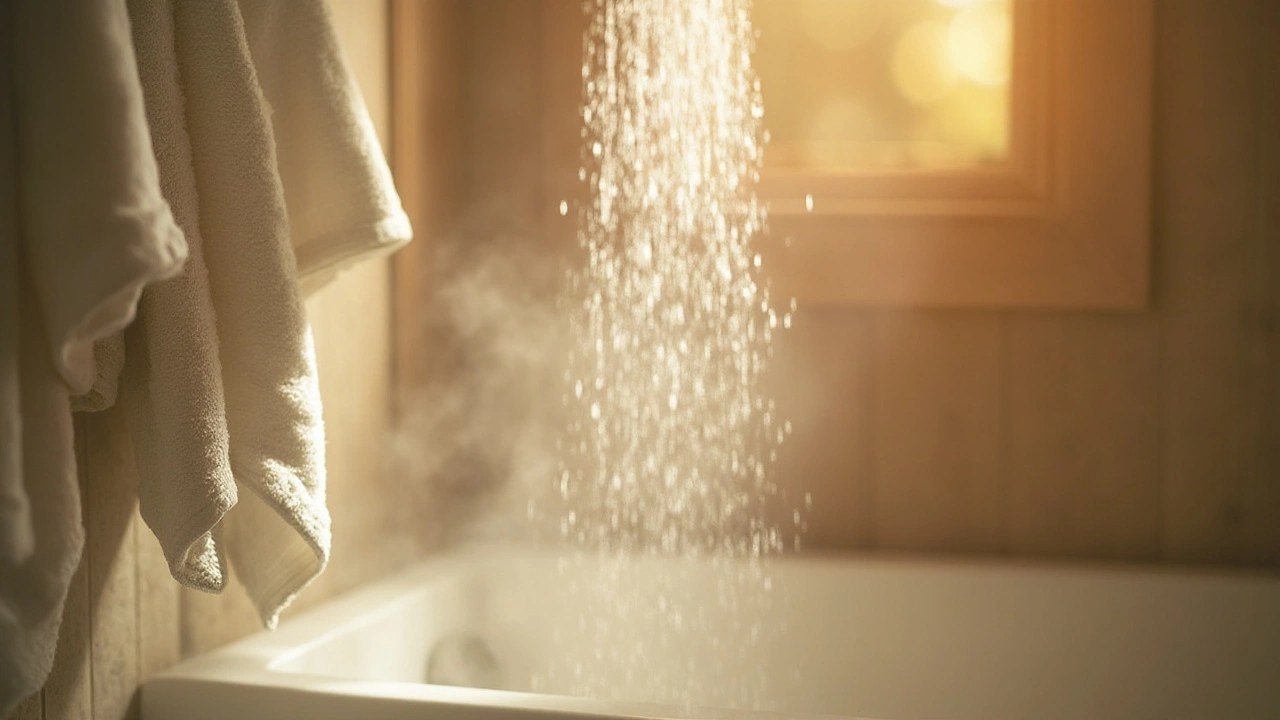
Understanding Water Heater Mechanics
To become familiar with the intricacies of your water heater, it's essential to first grasp its fundamental components. These mechanical behemoths might seem daunting, but their operations are akin to many household appliances we've come to love and depend on. The primary objective of any water heater is to take cold water, heat it up using some form of energy, and then distribute it throughout your home. Most homes in the United States predominantly use tank-style water heaters, which store and heat a specific amount of water continuously. They come in various sizes, typically ranging from 20 to 80 gallons, and are either gas or electric powered.
The journey starts at the water inlet pipe, introducing fresh, cold water into the tank. This is where the magic really begins. Inside the tank, a heating element or gas burner is triggered to rise the water's temperature to a preset level. Once heated, the water is stored inside the tank until a faucet or appliance demands hot water. The most vital component controlling this process is the thermostat. Responsible for regulating the temperature, the thermostat ensures the water does not overheat, preventing potentially hazardous conditions.
An often-overlooked facet is the importance of the thermostat's accuracy in dictating the efficiency of your water heater. Problems with cold water often stem from a misconfigured or malfunctioning thermostat. The common ideal temperature setting for home water heaters is around 120 degrees Fahrenheit. This temperature is deemed safe yet effective, providing enough warmth for household activities without the risk of scalding. Faulty thermostat adjustments could mean the heater isn't reaching this optimal range, significantly reducing the comfort of your hot water experience.
"Regular maintenance, including checking the thermostat settings and ensuring the heating elements are in good shape, can prolong the life of your water heater by up to 5 years," notes renowned home improvement expert Bob Vila.Additionally, consider that tankless models, a more recent innovation, heat water on-demand, offering endless hot water and reducing waiting times. These systems eliminate the need for a storage tank, ensuring energy efficiency and making them a popular choice for eco-friendly households. Understanding the specific mechanics of each type, whether tank-style or tankless, allows homeowners to make informed decisions when issues arise.
To maintain efficiency, a critical maintenance task is the periodic draining of your tank to remove sediment build-up. Over time, minerals like calcium and lime can accumulate at the bottom of the tank, insulating the heating element or burner. When these sediments thicken, they require more energy for the water heater to function optimally. This seemingly small effort can save substantially on energy costs and prevent unnecessary wear and tear.
Now that the gears of your water heater’s mechanics are more defined in your mind, you can approach any issues with a more informed perspective. Whether you’re troubleshooting a cold water problem or just curious for knowledge's sake, tapping into the complex workings of these essential home devices can be an enlightening endeavor. Remember, knowledge, like mechanics, fuels a better performance!


